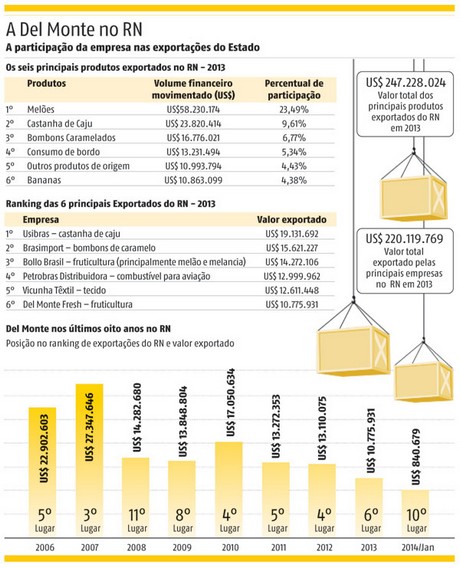One of the determining factors for the company to start exporting to markets abroad is the possible confirmation of tariff reductions on banana imports, via the negotiations between Mercosur and the European Union, as the high taxes leave the company in a competitive disadvantage.
According to Roberto Barcelos, Chairman of Coex's Executive Committee, Europe has a tax rate of 40% on bananas, while the tax on other fruits averages 10%. Meanwhile, the competitors aren't paying any tariffs due to the trade agreements between their countries.
In some farms, Del Monte will stop planting bananas to produce other fruit crops. The conversion of the production line will have a significant impact on the staff, as many people will be laid off, said the source.
Currently, the company employs approximately 6,900 people for the production of banana in the states of Rio Grande do Norte and Ceará. On average, 30% of their product is aimed at the Brazilian market, and the other 70% to the foreign market.
Below chart in Spanish.

The company's new farms in Rio Grande do Norte, which are concentrated in the Valley of Acu, will be used to grow bananas and other crops for the domestic market; hence, they won't be leased or sold.
The last two years of drought and the state's climatic conditions have also contributed to the company's decrease in productivity and their withdrawal from exporting the product, as has been officially announced. However, according to the source, the problem was not necessarily the lack of water but the climatic conditions of drought.





